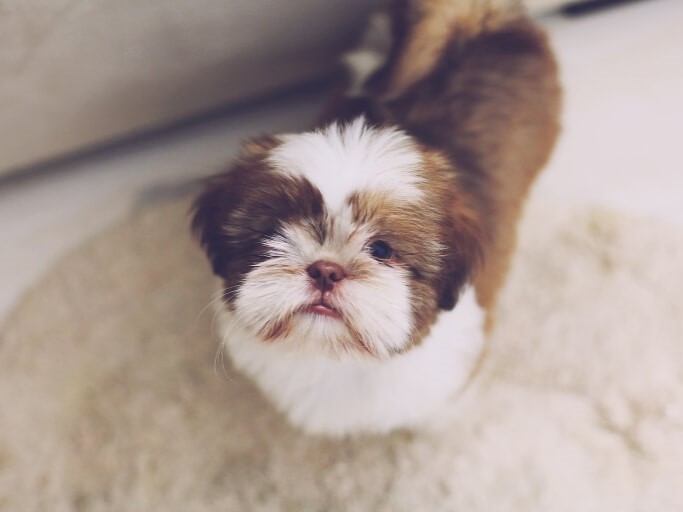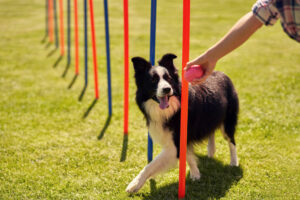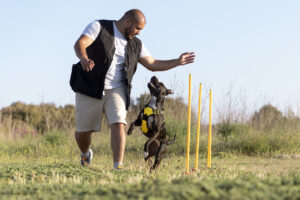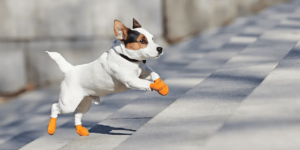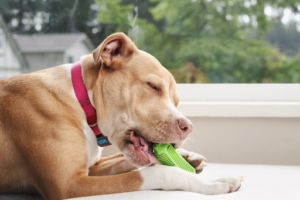Brachycephalic dog breeds are distinguished by their shorter snouts or flattened noses, which result in narrow nostrils and smaller airways. The name Brachycephalic comes from the Greek meanings for “short” and “head,” and the breeds’ wrinkled muzzles and smooshy.
Brachycephalic dogs are a breed that has grown in popularity in recent years. So what precisely are brachycephalic dog breeds, and what distinguishes them from others? Let’s discuss that in this post.
Introduction to Brachycephalic Dog Breeds: The Basics
If you’re thinking of adding a brachycephalic dog to your family, there are certain things you need to take into account!
Exercise Limitations
When it comes to exercising for brachycephalic breeds, there are several things to keep in mind. Some dogs with flatter faces have difficulty self-regulating their temperatures during and after activity.
This is why it’s important to discuss which activities are appropriate for your dog. If you’re looking for ideas, our PetFitness YouTube channel is a fantastic resource for pet owners who want to keep their brachycephalic dogs healthy and active.
Health Issues
Brachycephalic dogs often require assistance in controlling their temperatures during hot and humid weather due to the distinctive form of their faces and airways. These breeds have unusually shaped heads and may struggle to pant sufficiently to cool down, causing them to overheat.
In hot climates, having access to cool water, fans, or air conditioning is essential. Additionally, due to the form of their skull and the folds or rolls of skin, several brachycephalic breeds are vulnerable to specific skin, eye, or dental health concerns.
Common Health Issues of Brachycephalic Dog Breeds
While their iconic characteristics make brachycephalic dogs extremely cute and charming, they can also result in a variety of health issues. Given the folds and wrinkles on their faces, they may get dental concerns, skin infections, and eye problems.
Here are some of the things you need to watch out for when considering a brachycephalic dog breed for your home.
Skin Disease
Excessive skin folds in several brachycephalic breeds resulted in greater incidences of skin disease, according to the National Library of Medicine. Heat intolerance, digestive issues, urinary tract infection, dental disease, pneumonia, and intervertebral disk disease are also very common among this breed group.
Eye Problems
Repeated surface injury to the eye, resulting in corneal ulcers, is typical in excessively brachycephalic dogs. Their extremely short snouts are simply not long enough to protect the eyes from foreign objects.
Although corneal ulcers can be caused by a variety of factors, including damage and decreased tear production, this condition in brachycephalic dogs is most typically caused by the lack of protection their short snouts offer.
Dyspnea
Brachycephalic dogs often have difficulty breathing due to their short snouts or narrow nasal passages. When excited or stressed, they may become dyspneic — a condition characterized by abnormally labored respiration. If not addressed quickly, this can lead to serious respiratory distress.
To help prevent dyspnea in brachycephalic dogs, it’s important to keep them cool and provide plenty of rest. Avoid activities that are too strenuous or prolonged, as well as situations where the dog may become overheated or overly excited.
Brachycephalic Obstructive Airway Syndrome (BOAS)
Long-term respiratory issues, as mentioned above, and an inability to cool down are naturally prevalent in brachycephalic dogs. One of these is brachycephalic obstructive airway syndrome or BOAS. It’s a progressive, lifelong disorder that can affect a dog’s ability to exercise, play, eat, and sleep.
How to Take Care of Brachycephalic Dog Breeds
Avoiding stress and heat is very crucial for brachycephalic dogs. Do the following actions with your dog to avoid discomfort, but visit your vet if symptoms worsen:
- Avoid stress and heat
- Instead of using a collar, use a harness
- Don’t let them overeat
- Keep a healthy body weight
- Maintain their skin and dental health
Conclusion
Brachycephalic dog breeds are a distinct and popular type of dog, distinguished by their remarkable look and affectionate nature. They do, however, have special health demands that must be properly handled to maintain their well-being.
Brachycephalic dogs may be fantastic friends and offer delight to their owners for many years with appropriate care and attention!
For more information about different dog breeds, check out the PetFitness blog today!

